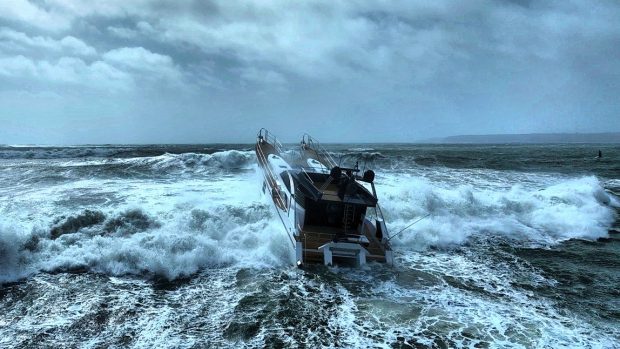There is a lot that the boating industry could learn from its similarities with the caravan industry, argues MBM news editor Chris Jefferies
Over the past ten years, my career has taken me from the boat industry to the caravan industry and back again, and the similarities between the two are more numerous than you might think.
Both are centred on recreational vehicles, which are often an impulsive purchase and mostly made by those aged 40 or over.
Both boast a strong core of British manufacturers, and yet have seen several major players suffer in the past six years as a result of the economic crisis.
Both boats and caravans are predominantly built from GRP, and most measure between 5m and 8m long.
They require you to burn much more fuel than you normally would, and often cost upwards of £20,000 to buy.
As recently as 2011, the two industries shared a major trade show at the Birmingham NEC (pictured) and still share several key suppliers, such as Dometic, Alde and Whale.
There have been numerous attempts to combine a boat with a caravan, including the German-made Sealander and the American Terra Wind amphibious RV.
The image of boating is far more glamorous and sexy than that of caravanning, and indeed boating is more than twice as popular, with 3.5million participants as opposed to 1.5million caravanners.
Nonetheless, and I’m sure many boaters would baulk at the suggestion, but there is a lot to be learned from comparing boating to caravanning.
Both hobbies are underpinned by our innate desire for freedom and natural exploration. Caravanners began to explore the countryside in the late 1940s and 1950s, liberated by the popularity of the motor car.
However, since then their liberties have been gradually eroded by wild camping regulations aimed at deterring gypsy encampments.
As a result, caravanners can no longer camp where they please, but must stick to designated sites run by members’ organisations or private businesses. These sites are well maintained and convenient, but hardly capture the spirit of wild camping.
When you consider the spread of Marine Conservations Zones and the associated threat to the liberty to anchor where we please, it’s not a huge leap of imagination to see leisure boats going the way of the caravan.
Another trend from the caravan industry that could make its way into boating is that of creeping licence restrictions.
In 1997, the Labour government changed the driving licence categories to impose a 3.5-tonne limit on the combined weight of your car and trailer for anyone passing their test after this date.
To have this limit lifted requires the driver to take a B+E towing course at a cost of £115 on weekdays and £140 on evenings and weekends.
This is finally starting to have an impact on the target audience for caravanning, with many drivers in their 30s now facing this obstacle when they consider investing in a caravan.
The anticipated impact on the caravan industry is worrying, with manufacturers currently scrambling to get their models under the 3.5 tonne unit limit, when coupled with an appropriate towcar.
By contrast, the current restrictions on boat licencing are incredibly liberal, with no formal skipper qualifications required by law until you graduate to a 24m vessel – hardly the realm of beginners.
But should that limit be lowered considerably, it could make young boaters reconsider their first purchase and cut off an important supply line to the industry.
Both boating and caravanning generate huge amounts of revenue for the British economy, estimated at £6.2bn and £6bn per year respectively.
However, any further restrictions in the name of environmental protection and health & safety could be hugely counter-productive to caravanning and boating and their enduring popularity.
About the author
Chris Jefferies is the news editor of Motor Boats Monthly. His previous roles include editor of CaravanTimes and narrowboat instructor at Guildford Boathouse.









